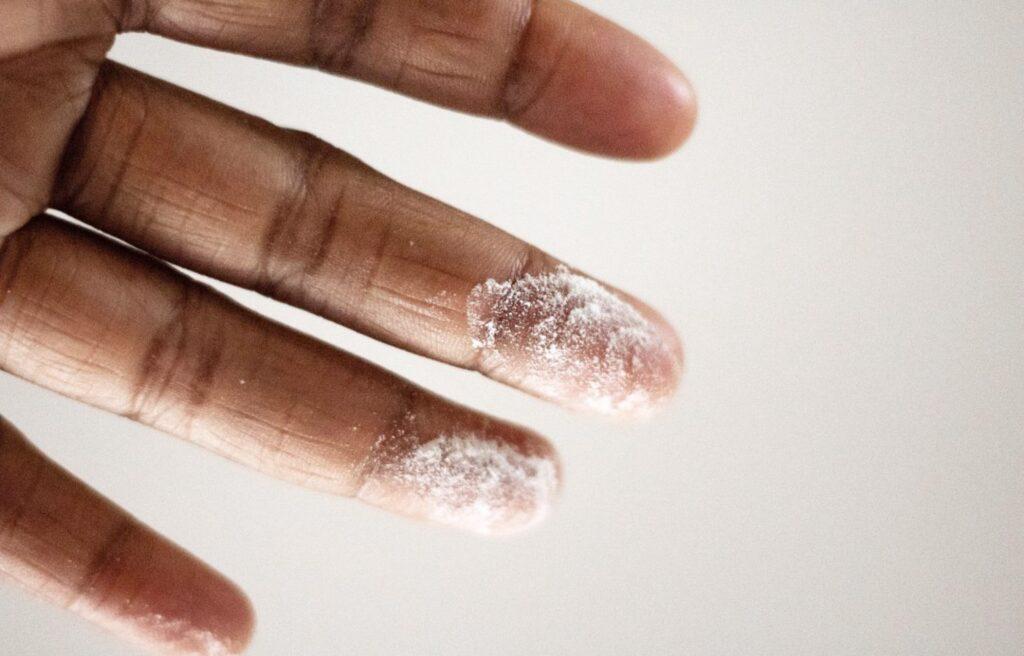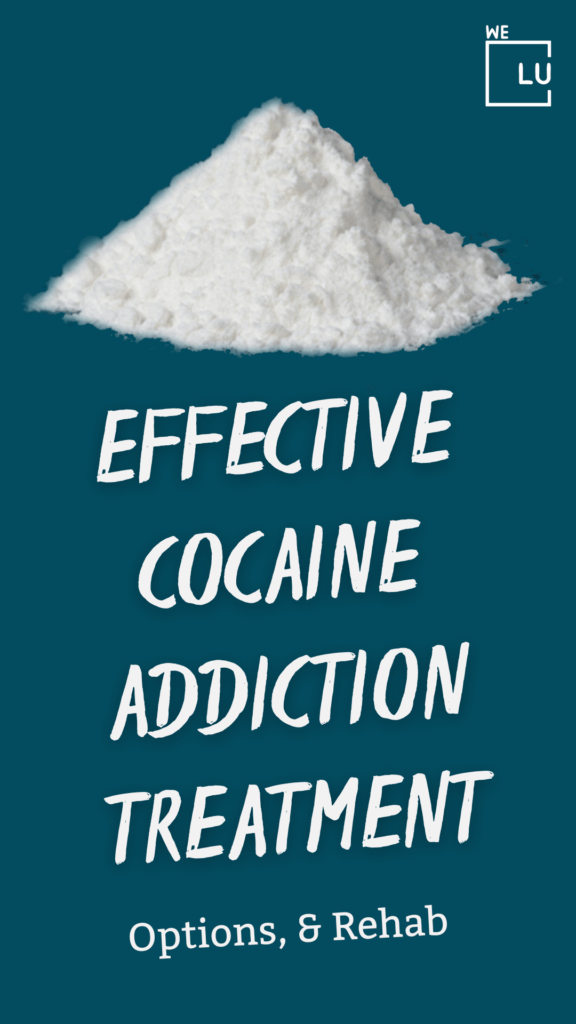Signs Of Cocaine Use In Adults
Cocaine is a highly addictive stimulant drug with severe physical, psychological, and social consequences for individuals who use it. Recognizing the signs of cocaine use in adults can be crucial in identifying and addressing a potential addiction early on.
Some common signs of cocaine use include changes in behavior, physical appearance, and overall health. Additionally, individuals who struggle with cocaine addiction may experience financial problems, relationship issues, and legal troubles due to their drug use.
If you suspect someone in your life may be struggling with cocaine addiction, it is important to be aware of the signs of a cocaine addict. These signs can include changes in mood, such as increased agitation or irritability, and changes in sleeping patterns, such as insomnia or oversleeping.
Other physical signs of cocaine addiction include dilated pupils, weight loss, and a runny nose. Additionally, individuals who use cocaine may engage in risky behaviors such as driving under the influence or engaging in unprotected sex.
Recognizing the signs of cocaine addiction and knowing how to approach someone who may be struggling with this addiction can be challenging. However, by being aware of the signs of cocaine abuse and seeking professional help, individuals can take the first step towards recovery and reclaiming their lives.
In this article, we will explore the various signs of cocaine use in adults, signs of a cocaine user, signs of cocaine addiction, signs of cocaine abuse, signs someone is on cocaine, and signs someone is using cocaine, and provide information on how to support individuals who may be struggling with cocaine addiction.
Signs Of Cocaine Overdose
Cocaine addiction can have serious consequences, including the risk of overdose. Knowing the signs of a cocaine overdose is critical in seeking timely medical attention and potentially saving someone’s life. However, it’s also important to recognize the signs of cocaine addiction and intoxication, as these can increase the risk of overdose.
Some common cocaine addiction signs include changes in behavior, mood, and appearance. Financial problems, legal troubles, and relationship issues may arise due to cocaine use, and individuals may also exhibit increased irritability, anxiety, and paranoia. Weight loss, skin sores, and dental problems are common signs of cocaine addiction.
Signs of cocaine intoxication can include dilated pupils, rapid heartbeat, and increased body temperature. Individuals who have taken cocaine may also appear agitated, anxious, or paranoid and may experience hallucinations or delusions. As the effects of cocaine wear off, individuals may experience a “crash” characterized by extreme fatigue, depression, and increased appetite.
When someone overdoses on cocaine, the signs and symptoms become more severe and life-threatening. Common cocaine overdose signs include confusion, tremors, and loss of consciousness. The individual may also experience chest pain, seizures, and respiratory distress. Other signs of a cocaine overdose may include sweating, nausea, and vomiting.
If someone exhibits signs of a cocaine overdose, it’s important to seek emergency medical attention immediately. Delaying treatment can result in serious or fatal consequences, including heart attack, stroke, or organ failure.
Overall, recognizing the signs of cocaine addiction, intoxication, and overdose can potentially save someone’s life. Seeking professional help for cocaine addiction can also help prevent the risks associated with drug abuse and can support individuals in reclaiming their lives. Remember, there is no shame in seeking help for cocaine addiction; treatment is available for those who need it.

Skip To:
Learn More:
- Cocaine Detox
- Why Is Cocaine Addictive? Effects Of Drug Abuse & Treatment
- How To Get Cocaine Out Of Your System Safely, Detox, & Professional Help
- Working Out On Cocaine
- Cocaine Tolerance
- The Dangers Of Mixing Cocaine and Viagra, Effects, & Abuse
- Sex and Cocaine
- Cocaine And The Heart
- Slang Names For Cocaine
- How Long Does Cocaine Stay in Your System? How Long Does Cocaine Stay in Urine?
Get Help. Get Better. Get Your Life Back.
Searching for Accredited Drug and Alcohol Rehab Centers Near You?
Even if you have failed previously and relapsed, or are in the middle of a difficult crisis, we stand ready to support you. Our trusted behavioral health specialists will not give up on you. When you feel ready or just want someone to speak to about therapy alternatives to change your life call us. Even if we cannot assist you, we will lead you to wherever you can get support. There is no obligation. Call our hotline today.
(844) 597-1011Popular Signs of Cocaine Use FAQs
-
What Are The Signs Someone Is Doing Cocaine?
Some common signs of someone doing cocaine include dilated pupils, increased energy or restlessness, increased talkativeness, decreased appetite, and increased heart rate. Other signs may include nosebleeds, agitation, anxiety, and paranoia.
-
What Are The Most Important Cocaine Signs or Cocaine Use Signs?
The most important signs of cocaine use indicate a potential overdose or serious health risks, such as chest pain, seizures, respiratory distress, confusion, tremors, and loss of consciousness. It’s important to seek emergency medical attention if someone exhibits these signs.
-
What Are The Signs Of Someone On Cocaine?
Signs of someone on cocaine may include dilated pupils, increased energy or restlessness, increased talkativeness, decreased appetite, and increased heart rate. Other signs may include agitation, anxiety, paranoia, hallucinations, or delusions.
-
Are There Signs Of Addiction To Cocaine?
Yes, there are signs of addiction to cocaine, including changes in behavior, mood, and appearance. Individuals may experience financial problems, legal troubles, and relationship issues due to cocaine use and may exhibit increased irritability, anxiety, and paranoia. Weight loss, skin sores, and dental problems are common signs of cocaine addiction.
-
Are There Signs Of Someone Using Cocaine?
Yes, signs of someone using cocaine may include dilated pupils, increased energy or restlessness, increased talkativeness, decreased appetite, and increased heart rate. Other signs may include nosebleeds, agitation, anxiety, and paranoia. However, it’s important to note that these signs may also indicate other medical or mental health issues and a professional evaluation is necessary for an accurate diagnosis.
Cocaine Addiction Factsheet
Cocaine Addiction Overview
Cocaine is a powerful stimulant drug that can have harmful short-term and long-term effects on the body. It is usually snorted, smoked, or injected and can cause increased heart rate, elevated blood pressure, and potential damage to the cardiovascular system. Cocaine use can also lead to addiction, mental health issues, and social and legal problems. Seeking professional help is important for those struggling with cocaine use.
Cocaine Addiction Treatment
Cocaine addiction treatment can involve therapy, medication, and support groups such as cognitive-behavioral therapy, antidepressants, and Narcotics Anonymous. Individualized treatment plans should address the individual’s specific needs and may involve a combination of these approaches.
Cocaine Addiction Symptoms
- Increased tolerance.
- Cravings.
- Withdrawal symptoms.
- Financial problems.
- Legal issues.
- Social and relationship problems.
- Neglect of responsibilities.
- Increased heart rate.
- Elevated blood pressure.
- Constricted blood vessels.
- Potential damage to the cardiovascular system.
- Mood swings.
- Irritability.
- Anxiety.
- Depression.
- Paranoia.
If you or someone you know is experiencing these symptoms, seeking professional help for cocaine addiction is important.
Cocaine Addiction Statistics
Cocaine addiction is a serious issue that affects millions of people worldwide. Understanding the scope of the problem through cocaine addiction statistics can help raise awareness and promote effective prevention and treatment strategies. From the prevalence of cocaine use to the health and social consequences of addiction, examining the statistics related to cocaine addiction can provide valuable insights into this complex and pervasive problem.
1.5 million
An estimated 1.5 million people in the United States over 12 had used cocaine in the past month in 2020.
Source: National Survey on Drug Use and Health
16%
Cocaine was involved in 16% of all drug-related emergency department visits in the United States in 2019.
Source: SAMHSA
14.3 million
Globally, cocaine use disorders affect approximately 14.3 million people aged 15-64, with North America having the highest prevalence rate.
Source: UNODC
Cocaine Signs And Symptoms

Signs And Symptoms Of Cocaine Use
Cocaine is a highly addictive and illegal stimulant drug that can cause various physical, psychological, and behavioral symptoms. It is derived from the leaves of the coca plant, native to South America, and is typically sold as a white powder that can be snorted, smoked, or injected. Here are some signs and symptoms of cocaine use:
Physical Signs Of Cocaine Use or Signs Of Cocaine Usage:
- Dilated pupils
- Increased heart rate
- Elevated blood pressure
- High body temperature
- Rapid breathing
- Sweating
- Tremors or shaking
- Nausea and vomiting
- Insomnia or difficulty sleeping
- Loss of appetite
- Weight loss
Psychological Signs of Cocaine Use:
- Intense euphoria or happiness
- Increased confidence and energy
- Heightened alertness and focus
- Increased talkativeness
- Irritability or agitation
- Paranoia or anxiety
- Hallucinations or delusions
- Mood swings or emotional instability
- Impaired judgment or decision-making abilities
Behavioral Signs That Someone Is Using Cocaine:
- Increased risk-taking behavior
- Reckless or impulsive behavior
- Engaging in dangerous activities
- Neglecting responsibilities or obligations
- Social withdrawal or isolation
- Financial problems or theft
- Legal problems or criminal activity
- Relationship problems or conflicts with family and friends
- Poor work or academic performance
Long-term use of cocaine can lead to severe health problems, such as heart attacks, strokes, seizures, and respiratory failure. It can also cause addiction, characterized by a compulsive drug-seeking behavior, even in the face of negative consequences. If you or someone you know is struggling with cocaine addiction, it’s important to seek professional help as soon as possible.

Get Your Life Back
Find Hope & Recovery. Get Safe Comfortable Detox, Addiction Rehab & Dual Diagnosis High-Quality Care.
Hotline(844) 597-1011Signs Of Cocaine Withdrawal
Cocaine is a highly addictive drug that can cause physical, psychological, and behavioral symptoms. When someone stops using cocaine, they may experience a range of withdrawal symptoms, which can be uncomfortable and even life-threatening in some cases. Here are some of the signs of cocaine withdrawal:
- Fatigue or exhaustion
- Depression or anxiety
- Agitation or irritability
- Insomnia or difficulty sleeping
- Vivid dreams or nightmares
- Increased appetite
- Slowed thinking or cognitive impairment
- Cravings for cocaine
- Suicidal thoughts or behaviors
The severity and duration of cocaine withdrawal can vary depending on factors such as the amount and frequency of cocaine use, the method of use, and the individual’s overall health and well-being. In some cases, withdrawal symptoms can be severe and require medical attention. But before someone can experience cocaine withdrawal, they must first use cocaine.
Signs someone does cocaine can include dilated pupils, increased heart rate, elevated blood pressure, high body temperature, rapid breathing, sweating, tremors or shaking, nausea, vomiting, insomnia or difficulty sleeping, loss of appetite, weight loss, intense euphoria or happiness, increased confidence and energy, heightened alertness and focus, increased talkativeness, irritability or agitation, paranoia or anxiety, hallucinations or delusions, mood swings or emotional instability, impaired judgment or decision-making abilities, increased risk-taking behavior, reckless or impulsive behavior, engaging in dangerous activities, neglecting responsibilities or obligations, social withdrawal or isolation, financial problems or theft, legal problems or criminal activity, relationship problems or conflict with family and friends, and poor work or academic performance.
If you suspect that someone is using cocaine, it’s important to approach the situation with care and concern. Signs that someone is on cocaine can include rapid speech, jitteriness, and a lack of coordination. They may also appear hyperactive or restless, and their behavior may be erratic or unpredictable.
If you are concerned that someone you know is using cocaine, it’s important to seek professional help immediately. Cocaine addiction can have serious and long-lasting effects on a person’s health, relationships, and overall well-being. With the right treatment and support, however, recovery is possible.
First-class Facilities & Amenities
World-class High-Quality Addiction & Mental Health Rehabilitation Treatment
Rehab Centers TourRenowned Addiction Centers. Serene Private Facilities. Inpatient rehab programs vary.
Addiction Helpline(844) 597-1011Proven recovery success experience, backed by a Team w/ History of:
15+
Years of Unified Experience
100s
5-Star Reviews Across Our Centers
10K
Recovery Success Stories Across Our Network
- Low Patient to Therapist Ratio
- Onsite Medical Detox Center
- Comprehensive Dual-Diagnosis Treatment
- Complimentary Family & Alumni Programs
- Coaching, Recovery & Personal Development Events
Cocaine Addiction Treatment
Cocaine addiction is a serious and complex disorder requiring comprehensive treatment to address the disease’s physical, psychological, and social aspects. Effective treatment for cocaine addiction often involves a combination of therapies and interventions tailored to the individual’s unique needs and circumstances.
One of the first steps in cocaine addiction treatment is detoxification, which involves removing the drug from the body and managing withdrawal symptoms. This process can be challenging and uncomfortable and may require medical supervision to ensure the safety and comfort of the individual. Medications may also be used to ease withdrawal symptoms and reduce the risk of relapse during this phase of treatment.

After detoxification, individuals with cocaine addiction typically benefit from ongoing therapy and support to address the psychological and social factors contributing to addiction. Cognitive-behavioral therapy (CBT) is a common form of therapy that helps individuals identify and change negative thought patterns and behaviors that may have contributed to their addiction. Contingency management is another therapy that incentivizes individuals to stay sober and engage in positive behaviors.
In addition to therapy, support groups such as 12-step programs and sober living environments can provide ongoing support and motivation for individuals in recovery. Family therapy may also help address family dynamics and relationships that may have been affected by addiction.
In some cases, medications may support ongoing recovery from cocaine addiction. For example, disulfiram is a medication that can help individuals stay sober by making them feel ill if they consume alcohol. Topiramate is another medication that is effective in reducing cocaine use.
It is important to note that successful treatment for cocaine addiction requires ongoing commitment and effort from the individual and support from loved ones and healthcare professionals. While relapse is a common part of the recovery process, remaining committed to treatment and seeking help to prevent further drug use and maintain long-term sobriety is important.
World-class, Accredited, 5-Star Reviewed, Effective Addiction & Mental Health Programs. Complete Behavioral Health Inpatient Rehab, Detox plus Co-occuring Disorders Therapy.
CALL(844) 597-1011End the Addiction Pain. End the Emotional Rollercoaster. Get Your Life Back. Start Drug, Alcohol & Dual Diagnosis Mental Health Treatment Now. Get Free No-obligation Guidance by Substance Abuse Specialists Who Understand Addiction & Mental Health Recovery & Know How to Help.
Signs of Cocaine Use & We Level Up Dual Diagnosis Treatment
The definition of dual diagnosis (also referred to as co-occurring disorders) can differ between institutions. However, it is generally described as the specific treatment of someone diagnosed with a substance use disorder and a mental health disorder simultaneously. Treating dual-diagnosis clients is a critical aspect of our inpatient treatment experience because co-occurring disorders are strongly correlated with instances of substance abuse.
Creating a treatment plan that addresses the physical aspects of withdrawal, the psychological connection with drug use, and managing underlying mental health disorders is part of setting clients up for success. A thorough mental health analysis identifies possibilities for treatment. Meeting with mental health counselors and medical care providers means access to behavioral therapy and medication treatment. At our dual diagnosis treatment center, We Level Up can implement the highest quality of care.
We recognize the fragile complexities of how mental and substance abuse disorders can influence others and sometimes result in a vicious cycle of addiction. That’s why we offer specialized treatment for dual-diagnosis cases to provide the most excellent chance of true healing and long-lasting recovery.
Accepting that you may be living with a mental illness can be challenging. However, treating the presenting substance abuse case can be magnitudes easier once properly diagnosed and treated. Only a properly trained medical professional can diagnose these underlying conditions. If you believe you are suffering from a disorder alongside addiction, we urge you to seek a qualified treatment center to begin your journey to recovery. Call We Level Up Cocaine addiction detox centers today.
Experience Transformative Recovery at We Level Up Treatment Centers.
See our authentic success stories. Get inspired. Get the help you deserve.
Start a New Life
Begin with a free call to an addiction & behavioral health treatment advisor. Learn more about our dual-diagnosis programs. The We Level Up Treatment Center Network delivers recovery programs that vary by each treatment facility. Call to learn more.
- Personalized Care
- Caring Accountable Staff
- World-class Amenities
- Licensed & Accredited
- Renowned w/ 100s 5-Star Reviews
We’ll Call You
Signs of Cocaine Use Informative Video
The duration for which cocaine can be detected in urine, blood, and saliva drug tests may differ based on several factors. Normally, cocaine and its byproducts are traceable in the body for approximately 3 to 4 days after the last use and up to 2 days after that in blood or saliva. Nevertheless, urine tests can detect cocaine metabolites for up to 4 days.
Search We Level Up Signs of Cocaine Use Resources
Sources
- National Institute on Drug Abuse (NIDA) – Cocaine: https://www.drugabuse.gov/drug-topics/cocaine
- Centers for Disease Control and Prevention (CDC) – Drug Overdose Data: https://www.cdc.gov/
- Substance Abuse and Mental Health Services Administration (SAMHSA) – Treatment Locator: https://findtreatment.samhsa.gov/
- National Institutes of Health (NIH) – Cocaine Addiction: https://www.drugabuse.gov/publications/research-reports/cocaine/what-cocaine
- U.S. Department of Health and Human Services (HHS) – Opioids: https://www.hhs.gov/opioids/
- National Library of Medicine (NLM) – Cocaine Addiction: https://medlineplus.gov/cocaine.html
- Drug Enforcement Administration (DEA) – Cocaine: https://www.dea.gov/
- National Institute of Mental Health (NIMH) – Substance Use and Addiction: https://www.nimh.nih.gov/health/topics/substance-use-and-addiction/index.shtml
- Office of National Drug Control Policy (ONDCP) – Cocaine: https://www.whitehouse.gov/
- National Survey on Drug Use and Health (NSDUH) – Substance Use Data: https://www.samhsa.gov/data/data-we-collect/nsduh-national-survey-drug-use-and-health


